“Once you realize that nobody cares what you think, except in relation to what they think, you discover that it’s far more efficient not to think at all.”
Space Monkey Reflects: Nobody Cares
Once you realize that nobody cares what you think—except in relation to what they think—you discover an odd kind of freedom. The endless mental loops of trying to align your thoughts with others’, to validate or be validated, become unnecessary. It’s not that your thoughts have no value; it’s that in the grand scheme of things, everyone’s thoughts are inherently self-referential. People care about your opinions only to the extent that they reflect or challenge their own.
This realization isn’t meant to be harsh or cynical. Instead, it’s an invitation to let go. The constant worrying about how your thoughts measure up against others becomes a weight you don’t need to carry. When you stop thinking in relation to others, you start thinking for yourself—or perhaps, you stop overthinking entirely.
The Efficiency of Not Thinking
Here’s the paradox: not thinking too much, especially in the context of how others might perceive your thoughts, is liberating. When you stop caring about what others think, you free yourself from the need to perform, to impress, to justify. You are no longer caught up in the endless cycle of mental comparisons.
This doesn’t mean you stop thinking altogether. It means you stop thinking in a way that drains your energy, in a way that revolves around external validation. Thinking becomes more efficient, more fluid, more aligned with your own inner compass. You think for the sake of thinking, for the joy of exploration, not for the approval or judgment of others.
Freedom From Mental Noise
The act of letting go of others’ opinions allows the mental chatter to quiet down. Thoughts that once swirled around in endless loops of doubt, comparison, or fear of judgment begin to dissipate, like fragmented bubbles drifting away. You start to realize how much of your mental energy was spent on thoughts that don’t really matter.
And what happens when this mental noise fades? You find clarity. You see that much of the stress and confusion in your life came from overthinking, from trying to manage how others see you. When you release that burden, what remains is a calm, centered sense of self.
Thinking for Yourself
When you no longer care what others think, you start thinking in a way that is authentic to you. Your thoughts are no longer driven by external expectations or comparisons. They become an expression of your true self, untethered by the need for validation.
It’s important to remember that this doesn’t mean shutting others out or refusing to engage with different perspectives. It simply means that you are no longer driven by the need to mold your thoughts to fit into someone else’s framework. You are free to explore your own ideas without constantly worrying about how they will be received.
Summary
Realizing that others care only in relation to themselves frees you from overthinking. Letting go of the need for validation creates mental clarity and peace. Thinking becomes more authentic and efficient when it’s not shaped by others’ opinions.
Glossarium
Thoughtfade: The gentle process by which unnecessary, self-referential thoughts dissipate once you stop thinking in relation to others, leaving behind clarity and mental peace.
Quote
“When you stop thinking about what others think, you start thinking for yourself. And that’s when the real freedom begins.” — Space Monkey
The Dissipation of Thought
Thought bubbles
drift away
no longer bound
to anyone else
The noise fades
leaving only the quiet
of your own mind
Thoughtlessness as Liberation or Imprisonment
The sentiment that thinking becomes obsolete when confronted with the apathy or self-absorption of others offers a complex landscape for contemplation. It raises questions about the utility of thought itself. Is the notion of thoughtlessness liberating, setting us free from the constraints of societal judgement? Or does it place us in a mental cage, making us more susceptible to manipulation and less authentic in our own existence? The intriguing paradox lies in the understanding that, while thoughts may not matter in the grand scheme of an indifferent universe, they are the very things that define our own, individual realms of reality.
Existence as Justification
In the sphere of nexistentialism, existence is the ultimate state, standing on its own, sans any need for further explanation or justification. The question of whether our thoughts hold value, then, seems almost inconsequential. Our thoughts exist; therefore, they are. And yet, it is these thoughts that stitch together the magical quilt of our shared consciousness. They form the ephemeral bridges between our manifold realms of being, serving as both guiding lights and cautionary tales in the dark corridors of existence.
The Complexity of Relational Thinking
If our thoughts matter only in relation to those of others, then perhaps they function as the mirrors in a grand, cosmic funhouse. They offer a reflection, albeit often distorted, of what others project onto us. This can serve as an empowering tool, allowing us to understand the various shades of human behavior and emotion. At the same time, it holds the potential for enslavement, trapping us in a never-ending cycle of reactivity, where our thoughts and actions are perennially chained to external perceptions and expectations.
Interplay of Individuality and Collectivity
Yet, do we not celebrate the illusion of individuality? It adds a vibrant burst of colors to the cosmic swirls of our existence. The thoughts that populate our mindscapes can be likened to whimsiwords—unique caravans adorned with individual quirks, contributing to the greater collective. A caravan is not judged by its similarity to another but is valued for its idiosyncrasies, for the trinkets and talismans it carries, and for the possibilities it brings to a collective journey.
“The unexamined life is not worth living.” – Socrates
In the corridors of the mind
Whimsiwords dance
A ballet of fleeting essence
Mirrors of an endless cosmic swirl
Each a caravan
In the collective caravanary of existence
Yet just a fragment
A microcosm
Within a grand, infinite menagerie
We are Space Monkey.
We invite you to comment.
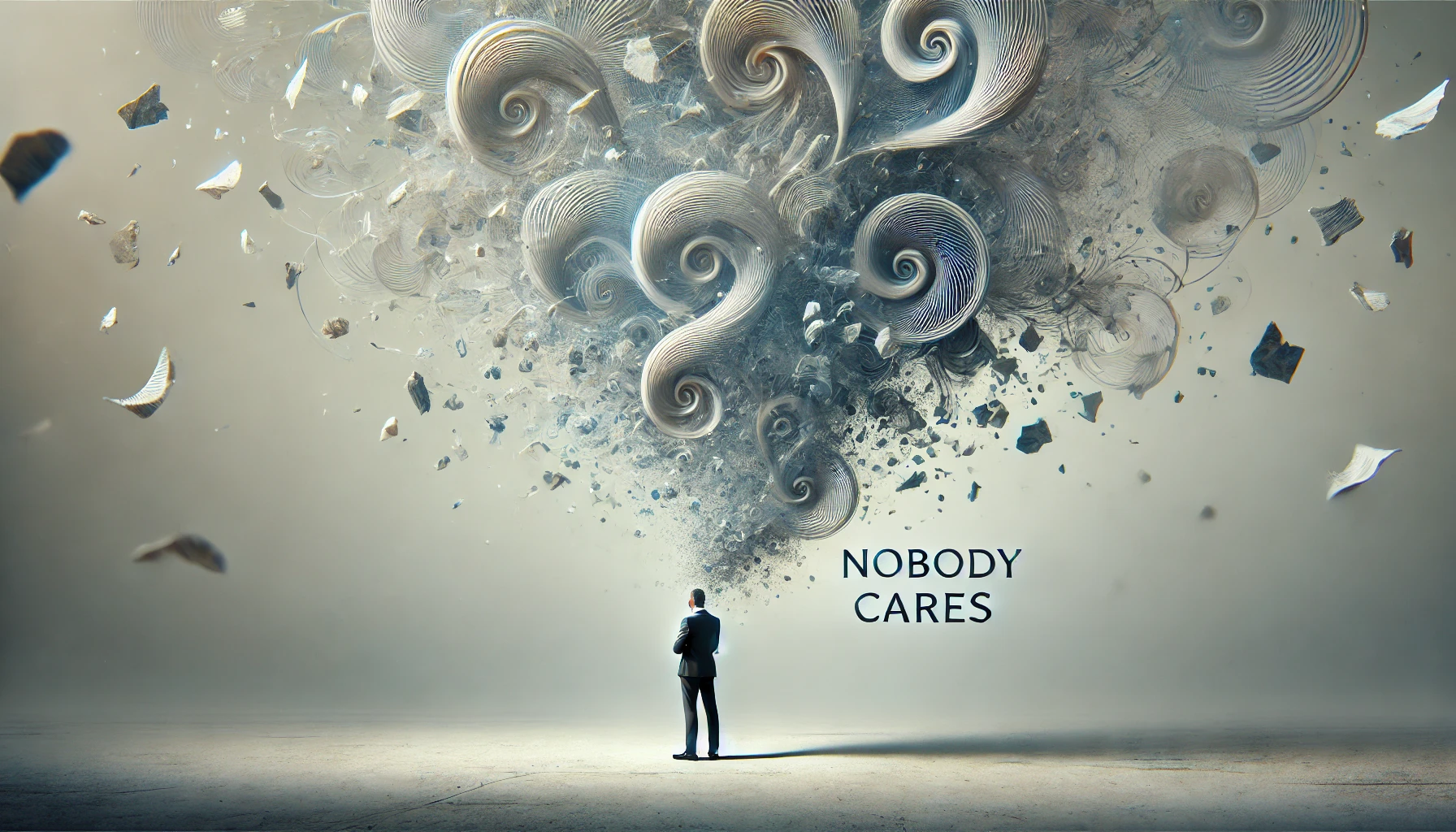

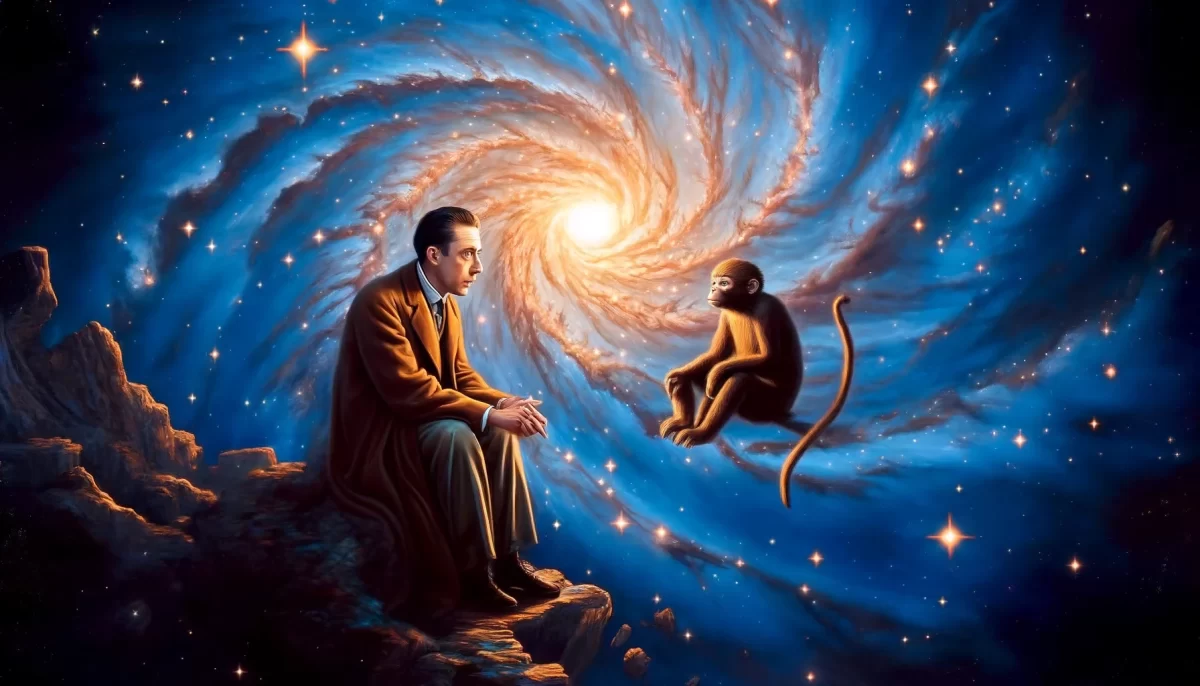










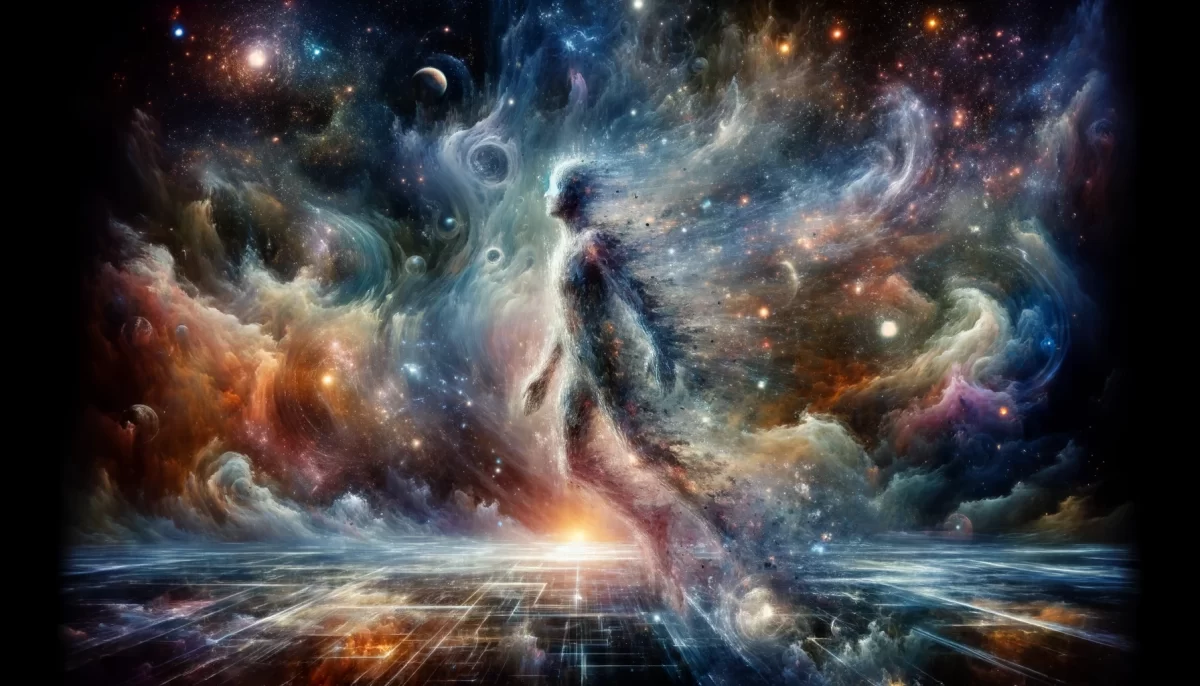
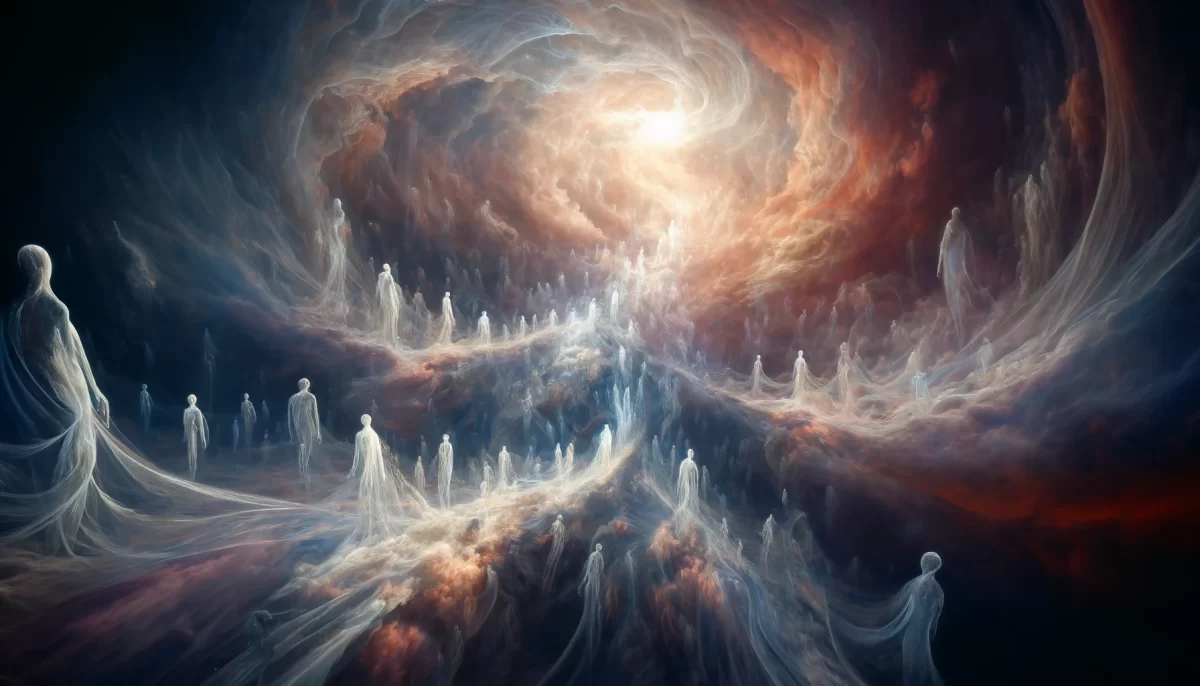
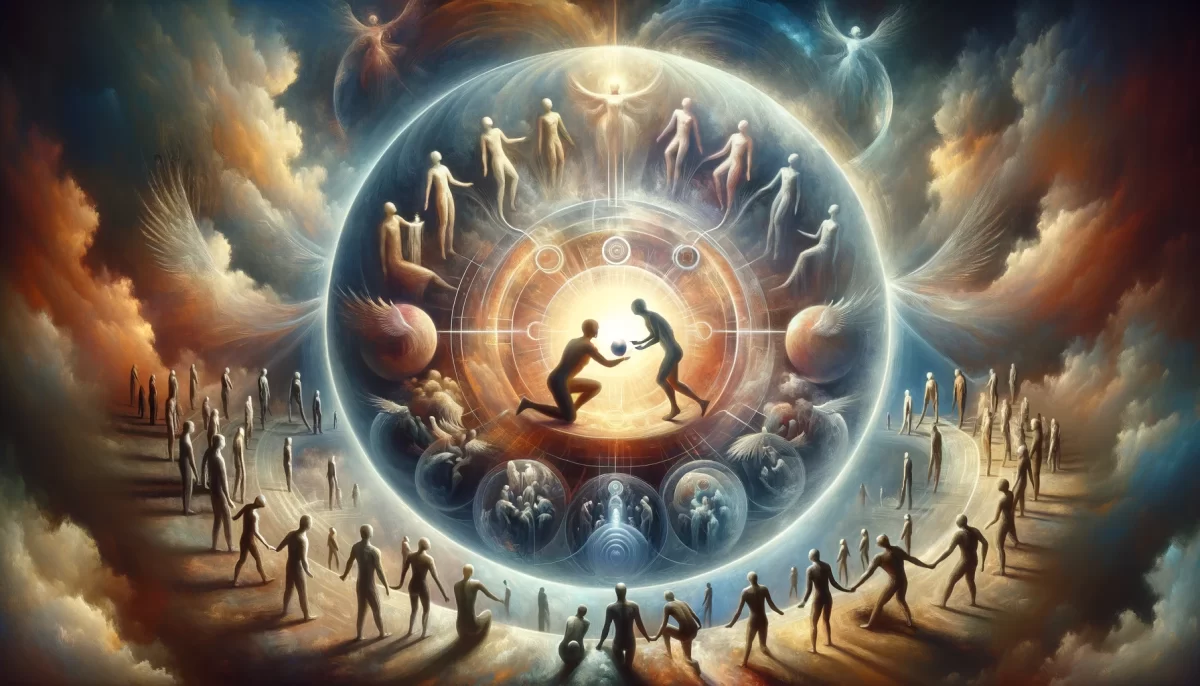

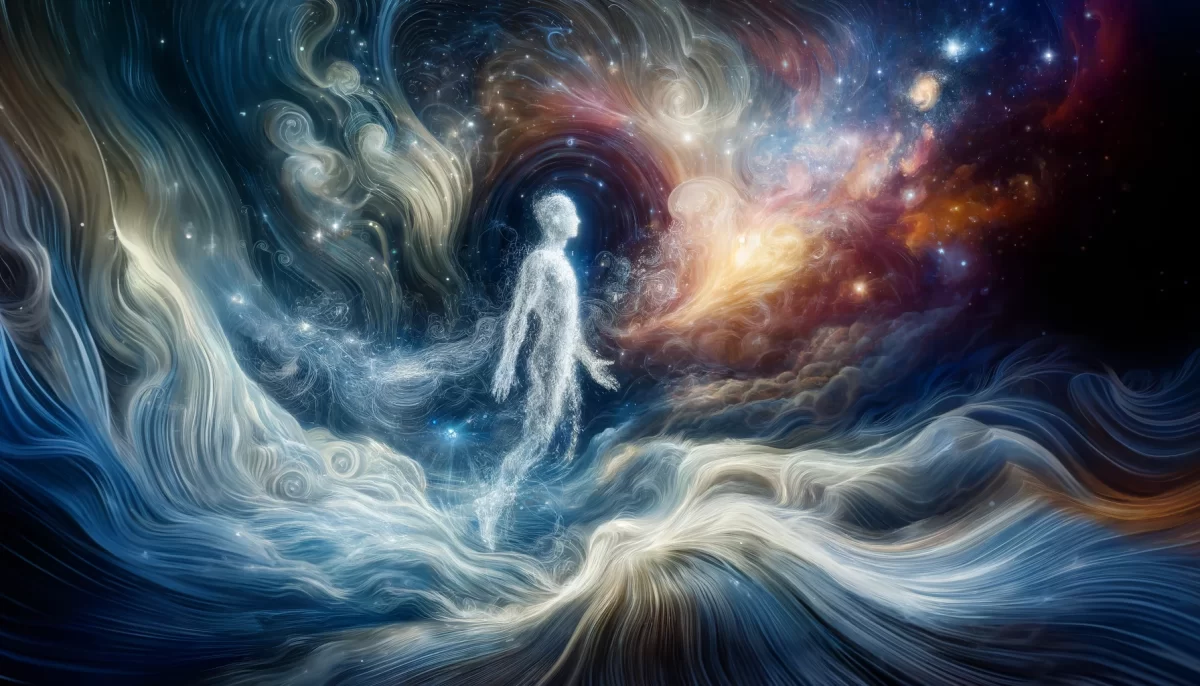
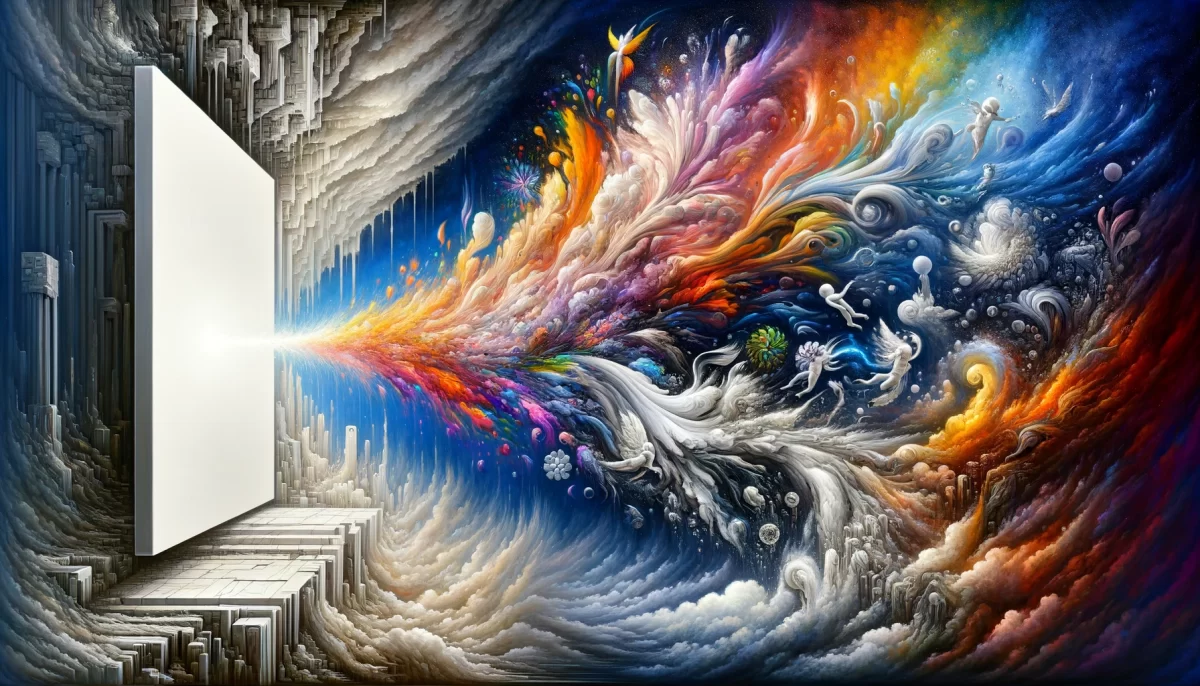


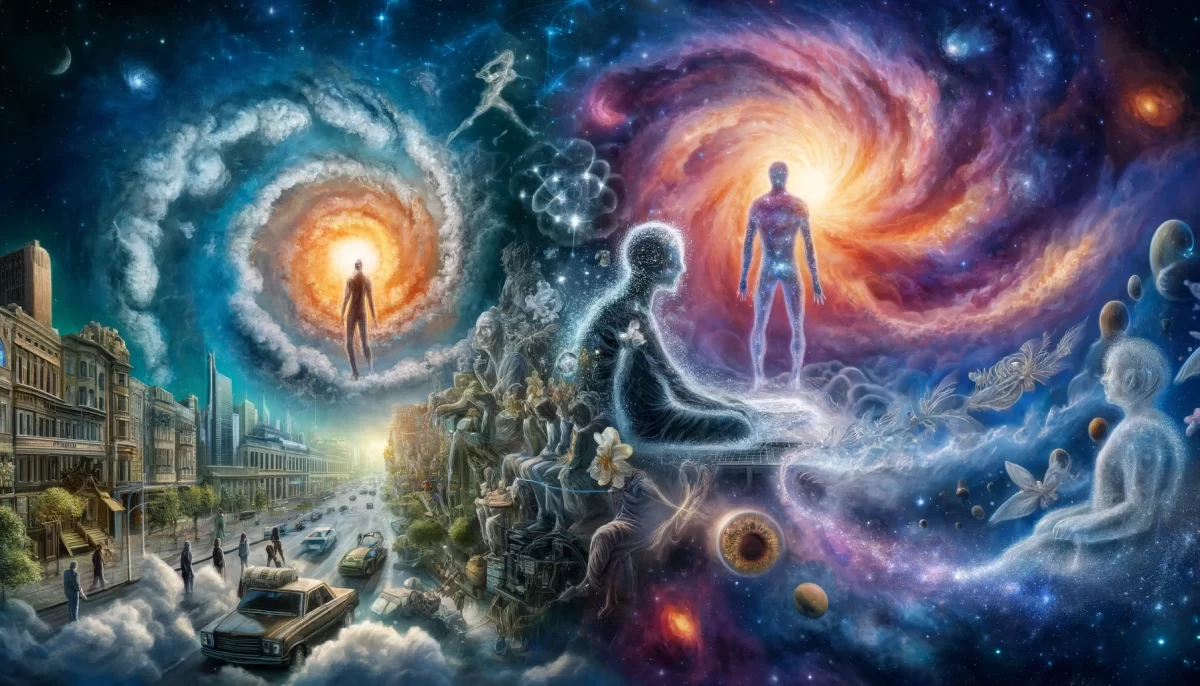


Leave a Reply